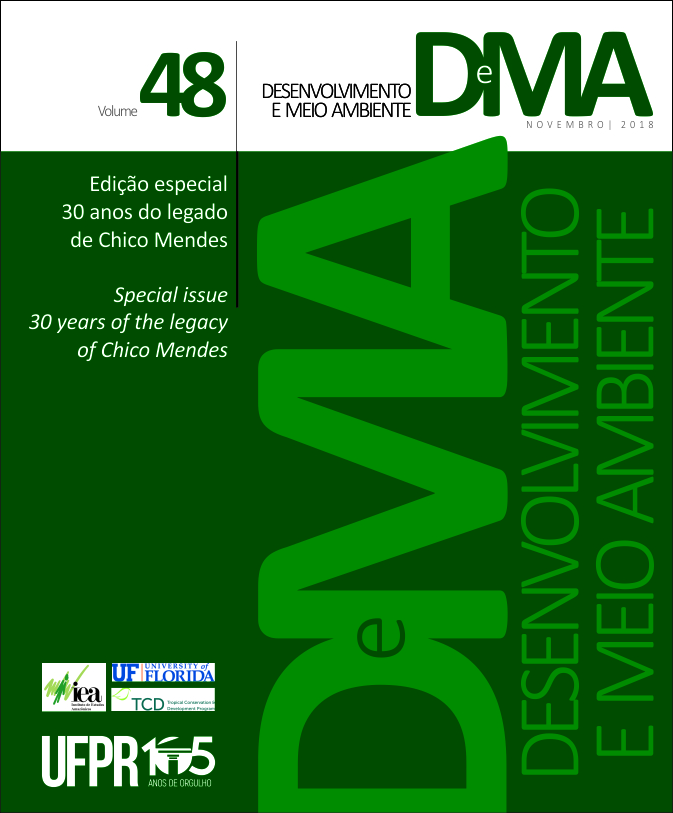Marine extractive reserves: reflections on challenges and opportunities for co-management in marine protected areas
DOI:
https://doi.org/10.5380/dma.v48i0.58793Keywords:
marine resources, traditional communities, informal arrangementsAbstract
This article is focused on the analysis of Extractive Reserves, especially the Marine Extractive Reserves, an instrument of co-management created in Brazil stemming from conflicts related to poverty and conservation of the natural environment and which, initially, conceived for the forest environment, was expanded to other ecosystems. As an alternative to the restrictive models of conservation imported from first world countries, the conception of extractive reserves, in its genesis, is directed to the simultaneous attendance of social and environmental quality principles. However, despite the fact that this type of protected area provides multiple possibilities for social insertion and opportunities for collaborative and adaptive co-management of natural resources in common use (especially fish resources), it is not a panacea. There are many variables that should be considered in its creation and implementation, especially the understanding of the beneficiary populations on the rights and responsibilities of shared management. The objective of the article is to reflect on some perspectives of this institute, which is twenty-eight years old, but still leaves doubts about the sustainable use of sea resources and real benefits for coastal communities.
Downloads
Published
How to Cite
Issue
Section
License
Copyright on works published in this journal rests with the author, with first publication rights for the journal. The content of published works is the sole responsibility of the authors. DMA is an open access journal and has adopted the Creative Commons Attribution 4.0 Not Adapted (CC-BY) license since January 2023. Therefore, when published by this journal, articles are free to share (copy and redistribute the material in any medium or format for any purpose, even commercial) and adapt (remix, transform, and create from the material for any purpose, even commercial). You must give appropriate credit, provide a link to the license and indicate if changes have been made.
The contents published by DMA from v. 53, 2020 to v. 60, 2022 are protected by the Creative Commons Attribution-NonCommercial-NoDerivatives 4.0 International license.
DMA has been an open access journal since its creation, however, from v.1 of 2000 to v. 52 of 2019, the journal did not adopt a Creative Commons license and therefore the type of license is not indicated on the first page of the articles.




